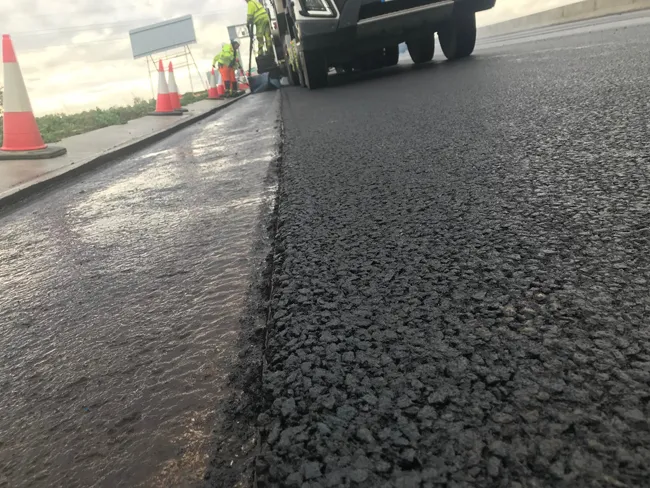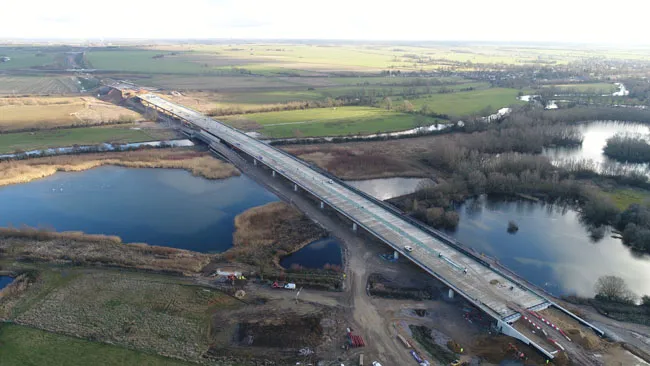
Section 1 of
The pavement works at Brampton Hut motorway services specified minimum sound level requirements of -7.5db (A). The limits are designed to curb noise pollution generated by the new road across built-up areas.
“As the sole pavement contractor and supplier to the UK’s largest and most prestigious road improvement project, one of our key aims is to help reduce the impact of operations on the local community and the network,” said Paddy Murphy, director of contracting at Aggregate Industries.
“One way we’re doing this is by ensuring that our asphalt solutions reduce excessive noise pollution to those residing in the built-up areas of the scheme. As the only HAPAS-approved ultra-low noise asphalt available to the UK market, our SuperThin asphalt far exceeds the minimum noise limits at Brampton Hut Services.”
Aggregate Industries suggested the use of its 10mm SuperThin asphalt. At 7.8db (A) by far exceeds the minimum sound level requirements, rather than the -3.5db (A) associated with traditional hot-rolled asphalt.
In addition, the company’s technical experts in surfacing are on hand to ensure all work is completed efficiently and to the highest quality standard possible in order to minimise disruption to the public.
Aggregate Industries, part of LafargeHolcim Group, produces and supplies a wide range of construction materials including aggregates, asphalt, ready-mixed concrete and precast concrete products. It also produces, imports and supplies cementitious materials and offers a national road surfacing and contracting service.
The company is certificated to BES 6001, the Framework Standard for the Responsible Sourcing of Construction Products, developed by the UK’s BRE - Building Research Establishment - and is a founding member of the UK Green Building Council.









